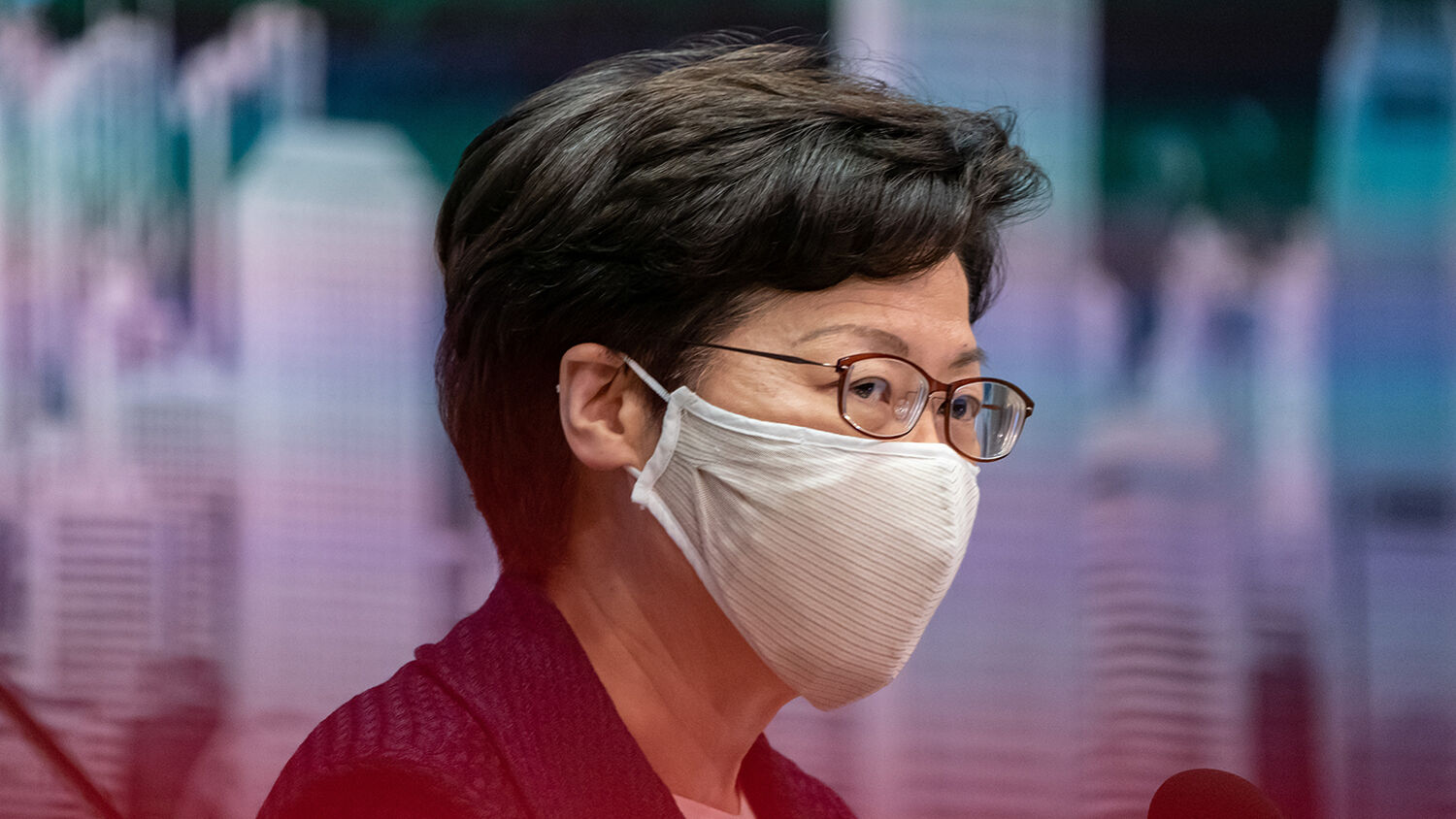
Hong Kong’s Elections ‘Postponed’
2020 has been the year of the greatest repression of Hong Kong’s freedoms since the United Kingdom handed the province over to China in 1997. On July 31, one month after Beijing enforced its National Security Law, Hong Kong Chief Executive Carrie Lam announced that its Legislative Council elections scheduled to be held on September 6 would be postponed to Sept. 5, 2021.
Lam explained that this decision was made under the authority of the colonial-era Emergency Regulations Ordinance, based solely on the resurgence of covid-19 in the region and had nothing to do with politics. “If we continue with our election, millions of voters will be visiting polling stations on the same day. The risk of infection would be very high,” she said. “The decision to postpone the 2020 Legislative Council election has nothing to do with politics, has nothing to do with the likely outcome of this round of election. It is purely on the basis of protecting the health and safety of the Hong Kong people and to ensure that elections are held in a fair and open manner.”
Very few people believe her.
Unsurprisingly, Lam’s decision received the support of the Communist Chinese government.
The Diplomat wrote: “Even given the pandemic context, the election delay was an unprecedented announcement. It cannot be divorced from the political context of a new National Security Law, passed by fiat from Beijing, that has already severely restricted political activism in Hong Kong.”
Many countries around the world have condemned the announcement as another example of the Chinese Communist Party attempting to control those voted into office. United States Secretary of State Mike Pompeo issued a statement condemning the decision, especially noting how long the delay was. “It is likely,” he said, “that Hong Kong will never again be able to vote—for anything or anyone.” Unless elections are held as close to September 6 as possible, he continued, “Hong Kong will continue its march toward becoming just another Communist-run city in China.”
Twenty-two Hong Kong lawmakers put together a statement accusing the government of using the outbreak as an excuse to delay the vote and said it would “trigger a constitutional crisis in the city.”
It’s not hard to see how Hong Kong got to this point. During the 2019 protests, pro-democrats won a major election victory, winning in 17 out of 18 district councils and nearly tripling their seats. Because of this victory, democratic supporters were optimistic that the pro-democrats would again win a majority in the Legislative Council elections originally planned for this September. Despite the turmoil of 2019, they could not have foreseen what this year would bring. At 11 p.m. on June 30, Beijing’s National Security Law went into effect in Hong Kong. The law prohibits treason, secession, sedition and subversion against the Central People’s government. This has led to a string of suppressions, warning shots that made Lam’s announcement unsurprising to those closely watching events.
The Diplomat wrote:
First came the warning that the pro-democracy camp’s primary elections could be considered an act of sedition. Erick Tsang, the secretary for constitutional and mainland affairs, warned that the opposition camp’s plan to win a Legislative Council majority and use that power to vote down the government’s budget could violate the National Security Law’s prohibition on subversion. By extension, anyone taking part in the process to select such candidates could be in violation of the law.
“Those who have organized, planned, or participated in the primary election should be wary and avoid carelessly violating the law,” Tsang said.
Over 600,000 Hong Kongers voted in the primaries anyway.
In a later statement, the government formally warned that it would be disqualifying for any candidate to plan on “indiscriminately voting down any legislative proposals, appointments, funding applications and budgets introduced by the government after securing a majority in the Legislative Council so as to force the government to accede to certain political demands.”
Using legislative power—including the power of the purse—to force compromise is a core staple of democracy in any system with a split executive and legislative branch. Apparently in Hong Kong, however, that would now be illegal.
This same National Security Law was used to disqualify 12 pro-democracy candidates from running for elections and another 22 are still waiting for official approval. One of Hong Kong’s most well-known pro-democracy activists, Joshua Wong, was included in the 12 disqualified; he called Lam’s decision “the largest election fraud” in Hong Kong’s history.
China has a death grip on Hong Kong. Any semblance of the United Kingdom’s rule over the province is being erased. The free society handed over to China in 1997 has become just another Communist city.
It is another example of the end of America’s and Britain’s reign over the world and what God calls the “time of the Gentiles” (Luke 21:24). This is a prophecy of the decline of those Israelite nations that once controlled large swathes of the Earth and its resources. This decline happens simultaneously with the rise of Gentile powers. In The United States and Britain in Prophecy, Herbert W. Armstrong proved that the Israelite nations that received the birthright blessings of Abraham are Britain and America. The rising Gentiles are non-Israelites, such as China.
We can see this prophecy being fulfilled in vivid detail today. Britain and America, once two of the world’s wealthiest and most powerful countries, are now being challenged and overtaken by China. Over and again, the regions that Britain once governed are being handed over to Gentile control, and as we see in Hong Kong, the freedoms established by Britain are being rapidly stripped away.
For more on China’s rise, read our Trends article “Why the Trumpet Watches the Rise of China as a Superpower.”
